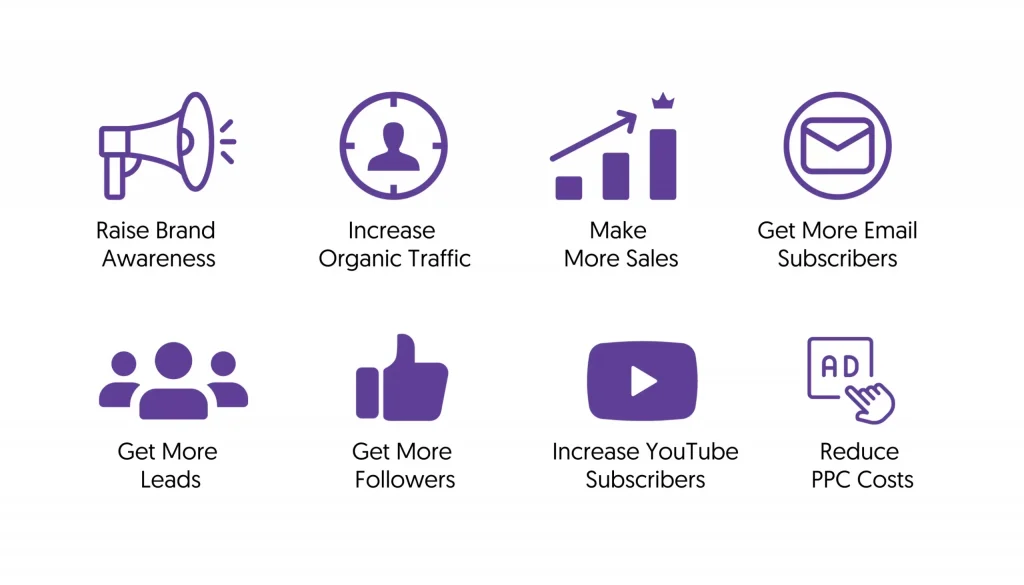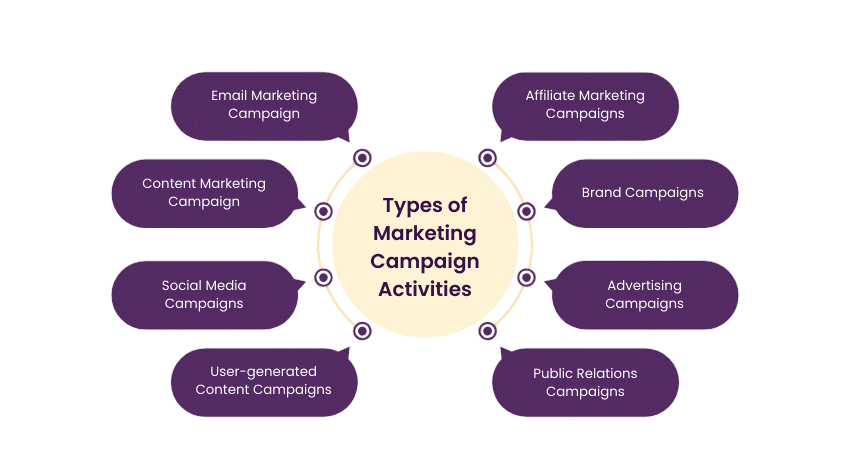
- Introduction to Digital Marketing Campaigns
- What Makes a Marketing Activity a Campaign
- Importance of Digital Marketing Campaigns
- Types of Digital Marketing Campaigns
- Components of a Successful Digital Campaign
- Steps to Plan and Launch a Digital Marketing Campaign
- Campaign Metrics and KPIs to Track
- Examples of Successful Digital Marketing Campaigns
- Conclusion
Introduction to Digital Marketing Campaigns
A digital marketing campaign is a coordinated set of online marketing activities designed to achieve specific business goals. These campaigns use various digital channels to promote a brand, product, or service and are driven by data, creativity, and strategy. Unlike individual ads or posts, a campaign involves multiple touchpoints and a strategic narrative aimed at moving customers through the buyer’s journey.A Digital Marketing Training campaign is a planned series of online marketing initiatives intended to accomplish particular company objectives, such raising revenue, lead generation, or brand exposure. Campaigns, as opposed to discrete marketing initiatives, are targeted and strategic, use a variety of digital platforms, including social media, email, search engines, and sponsored advertisements, to convey a single message to the intended audience. Data-driven, quantifiable, and customized to fit the needs and habits of prospective clients at various points in their journey are characteristics of successful digital marketing initiatives. These initiatives have the potential to greatly increase a company’s online exposure, improve customer connections, and increase engagement with proper planning and execution.
Ready to Get Certified in Digital Marketing? Explore the Program Now Digital Marketing Online Training Offered By ACTE Right Now!
What Makes a Marketing Activity a Campaign
A campaign is defined by purpose, timeline, targeting, messaging, and channels. A single blog post or ad may not be a campaign, but when combined with emails, social media promotions, and a call-to-action on a landing page all aligned to a common goal it forms a digital campaign. Campaigns are typically time-bound and performance-driven.When a marketing activity is a planned, coordinated sequence of events with a specified purpose, target audience, and timeline, it is referred to as a campaign. Campaigns, as opposed to one-time marketing initiatives, TensorFlow use a variety of channels and touchpoints to convey a consistent message that directs the audience toward a desired action, such as sales, lead generation, or brand awareness.

A campaign’s strategic goals, innovative messaging, audience targeting, financial allocation, and quantifiable results are essential components. Because campaigns are made to be trackable and goal-oriented, marketers can assess their efficacy and improve performance over time.
Importance of Digital Marketing Campaigns
- Targeted Reach: Allows businesses to precisely target and engage specific audiences.
- Measurable Results: Provides clear data to track campaign performance and ROI.
- Cost-Effective: Often more affordable than traditional marketing with better budget control.
- Brand Awareness: Increases visibility SEO Keyword Research and builds brand recognition across digital channels.
- Customer Engagement: Encourages interaction and builds stronger relationships with prospects.
- Flexibility: Campaigns can be quickly adjusted based on real-time feedback and analytics.
- Multi-Channel Integration: Combines various platforms for a cohesive marketing approach.
- Lead Generation: Drives qualified leads through tailored messaging and offers.
- Competitive Advantage: Helps businesses stand out in a crowded online marketplace.
- Supports Business Growth: Converts prospects into customers, boosting sales and revenue.
Types of Digital Marketing Campaigns
- Search Engine Marketing (SEM) Campaigns: These campaigns involve paid search ads (PPC) that appear on search engine results pages. Platforms like Google Ads and Bing Ads are used to drive immediate traffic through keyword targeting. SEM campaigns are great for capturing users with high purchase intent.
- Social Media Campaigns: Social campaigns leverage platforms like Facebook, Instagram, LinkedIn, Twitter, and TikTok to promote content, events, or offers. These can be organic (unpaid) or paid, and they aim to build engagement, followers, and conversions. A successful Digital Marketing Training campaign often includes storytelling, visuals, influencer collaboration, and audience interaction.
- Content Marketing Campaigns: These campaigns revolve around publishing valuable content (blogs, guides, videos, infographics) that attracts, engages, and converts target audiences. Content campaigns are ideal for building trust, improving SEO, and nurturing long-term relationships.
- Email Marketing Campaigns: Email campaigns are sequences of emails sent to segmented lists to nurture leads or encourage actions. Examples include welcome series, product launches, newsletters, re-engagement emails, or promotions. These campaigns are highly measurable and cost-effective.
- Influencer Marketing Campaigns: These campaigns involve partnerships with influencers who promote products or services to their audience. They help brands tap into trust and loyalty built by the influencer. A campaign may involve product reviews, giveaways, or branded content.
- Affiliate Marketing Campaigns: Affiliate campaigns recruit external partners who promote a brand in exchange for a commission per sale or lead. This performance-based approach is scalable and often used by ecommerce businesses.
- Mobile Marketing Campaigns: Mobile campaigns target users on smartphones and tablets through SMS marketing, mobile apps, in-app ads, push notifications, or responsive email. Mobile marketing ensures brands meet users where they spend most of their time.
- Video Marketing Campaigns: Video campaigns use platforms like YouTube, Facebook, or TikTok to engage viewers with rich visual content. Formats include product explainers, testimonials, ads, and live streams. Video enhances conversion by building emotional connections and showcasing products in action.
- Use SMART goals (Specific, Measurable, Achievable, Relevant, Time-bound). Example: “Generate 500 new leads in 30 days via a downloadable ebook.”
- Use tools like Google Analytics, Facebook Insights, and surveys to create audience personas. Knowing their challenges and preferences informs better messaging and targeting.
- Select digital platforms based on where your audience spends time and the campaign’s goal e.g., use Instagram for awareness or LinkedIn for B2B lead gen.
- Ensure your value proposition is clear and tailored to the platform. Include a strong call to action (CTA) like “Download Now,” “Shop the Sale,” or “Sign Up Today.”
- Design visuals, write ad copy, create videos, Copywriting and develop landing pages. Make sure they are mobile-optimized and consistent in branding.
- Deploy the campaign across selected platforms. Closely monitor key metrics using dashboards and adjust based on performance.
- Use A/B testing for headlines, CTAs, and images. Scale top-performing creatives or segments while refining underperforming ones.
- This campaign personalized Coke bottles with customer names and encouraged social sharing. It generated massive user engagement and boosted sales.
- Airbnb used customer photos and stories to promote travel experiences. This approach built trust and community, increasing bookings.
- This powerful video campaign showcased social justice, sports, Types of Content Marketing and unity. It gained viral attention and reinforced Nike’s brand identity.

To Explore Digital Marketing in Depth, Check Out Our Comprehensive Digital Marketing Training To Gain Insights From Our Experts!
Components of a Successful Digital Campaign
A great digital marketing campaign consists of a number of essential elements that cooperate to successfully accomplish its objectives. First and foremost, a well-defined goal is necessary to direct all activities and assess progress. Knowing the target audience enables the creation of engaging and impactful messaging. Strong, Market Research captivating creative content that is suited to the audience and platform maintains the campaign’s relevance and effectiveness. Choosing the right channels guarantees that the campaign reaches the target audience where they spend their online time. Setting a reasonable budget and schedule also Google Ads in effective resource management. Continuous campaign performance monitoring and analysis is equally crucial because it allows for prompt adjustments to maximize outcomes. Last but not least, including a clear call to action motivates the audience to complete the intended activity, such as buying something.
Steps to Plan and Launch a Digital Marketing Campaign
Step 1: Define Campaign Goals
Step 2: Understand Your Audience
Step 3: Choose the Right Channels
Step 4: Craft Your Message and Offer
Step 5: Develop Creative Assets
Step 6: Launch and Monitor
Step 7: Optimize and Scale
Looking to Master Digital Marketing? Discover the Digital Marketing Expert Masters Program Training Course Available at ACTE Now!
Campaign Metrics and KPIs to Track
Tracking the right metrics and Key Performance Indicators (KPIs) is crucial for measuring the success of a digital marketing campaign and making data-driven decisions. Common metrics include reach and impressions, which show how many people have seen your campaign, and engagement rates, such as likes, shares, comments, and click-through rates, that indicate how audiences interact with your content. Conversion metrics like the number of leads generated, SEO Keyword Research sales completed, or sign-ups directly measure how well your campaign achieves its goals. Other important KPIs include bounce rates and time on site, which provide insight into user experience and content relevance. Monitoring cost-per-click (CPC), cost-per-acquisition (CPA), and overall return on investment (ROI) helps ensure your campaign is financially efficient. By regularly analyzing these metrics, marketers can optimize campaigns in real time, allocate budgets effectively, and improve overall performance.
Examples of Successful Digital Marketing Campaigns
Coca-Cola’s “Share a Coke”
Airbnb’s User-Generated Content Strategy
Nike’s “You Can’t Stop Us” Campaign
Preparing for Digital Marketing Job Interviews? Have a Look at Our Blog on Digital Marketing Interview Questions and Answers To Ace Your Interview!
Conclusion
Digital marketing campaigns are powerful tools for driving brand awareness, generating leads, and increasing sales. Whether you’re a small business or a global brand, success lies in strategic planning, audience understanding, and continuous optimization. By leveraging the right mix of channels, Types of Digital Marketing , creative content, Google Ads and performance tracking, businesses can build effective digital campaigns that deliver measurable impact and long-term growth. Monitoring campaign data and KPIs is crucial to figuring out how successful your Digital Marketing Training initiatives are. You can obtain important insights that help you make better decisions and enhance subsequent campaigns by concentrating on the appropriate statistics, such as engagement, conversions, Launch a Digital Marketing and ROI. You may maximize budget efficiency, refine techniques, and eventually accomplish your marketing objectives with ongoing monitoring and analysis. Leveraging these KPIs is essential to creating effective, memorable campaigns that provide quantifiable outcomes in the cutthroat digital world of today.




